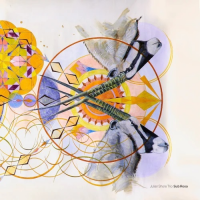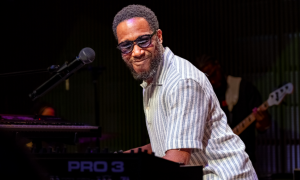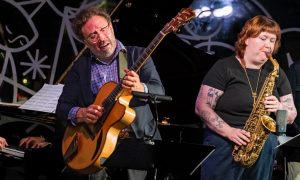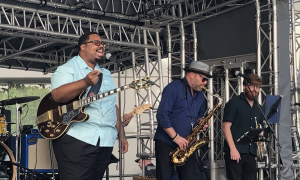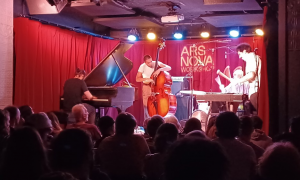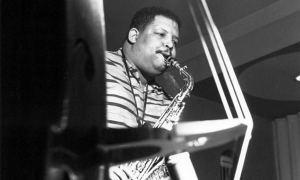Home » Jazz Articles » Live Review » Shai Maestro At Barcelona El Molino
Shai Maestro At Barcelona El Molino
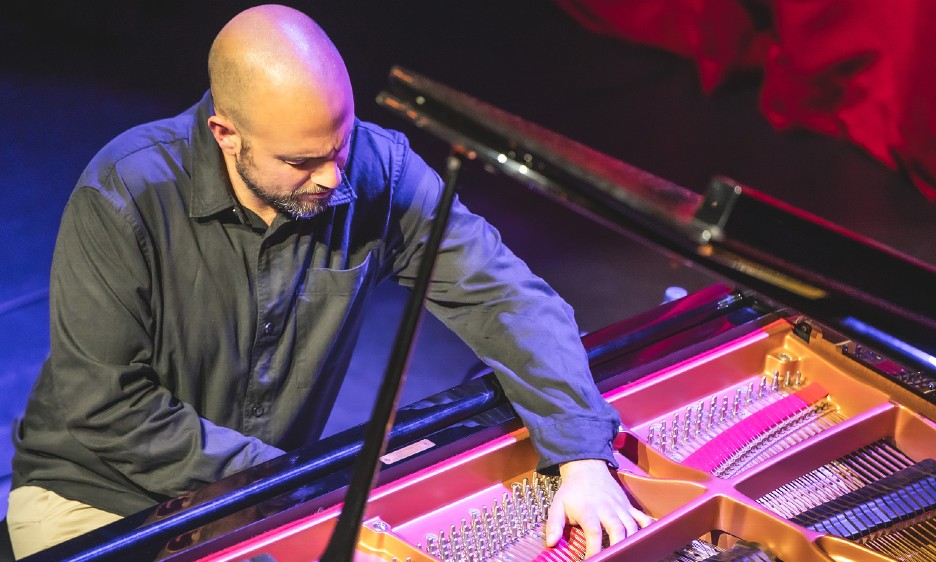
Courtesy V®™ctor Parre?o
Maestro challenges himself, setting traps that force one hand to quickly reconcile with the sudden detour taken by the other.
El Molino
Barcelona, Spain
May 16, 2025
The Barcel?na Concert?
The intense crimson decor of El Molino, once a caf®¶-concert hall devoted to revue and cabaret, now a splendidly renovated space dedicated to all genres of music—with a special emphasis on contemporary jazz—hosted a special night with
Shai Maestro
pianob.1987
It would be a mistake to frame the acclaimed pianist and composer's new phase as merely a deep dive into the probably most widely celebrated version of

Keith Jarrett
pianob.1945
 "
data-original-title="" title="">Manfred Eicher, "is the best Jarrett album in a long time not by himself." While one might appreciate such a phrase's witty or provocative tone, this statement undervalues the artist's uniqueness and overlooks his many other influences. There is as much Jarrett in that recording (e.g., "My Second Childhood") as there is
"
data-original-title="" title="">Manfred Eicher, "is the best Jarrett album in a long time not by himself." While one might appreciate such a phrase's witty or provocative tone, this statement undervalues the artist's uniqueness and overlooks his many other influences. There is as much Jarrett in that recording (e.g., "My Second Childhood") as there is 
Robert Glasper
pianob.1978

Brad Mehldau
pianob.1970
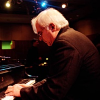
Paul Bley
piano1932 - 2016
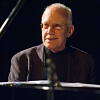
Steve Kuhn
pianob.1938
Still, his eloquent, lyrical language transported parts of the concertgoers from Barcelona's venue to Cologne's opera house on the night of January 24, 1975—the legendary evening of The Köln Concert (ECM Records, 1975), the most commercially successful solo piano recital in jazz history. Without making any direct comparison, it is unquestionable that Maestro did occasionally employ some strategies the American famously elevated to the status of his musical brand: rhythmic climaxes that begin almost inaudibly before exploding in a flurry of sound, unexpected harmonic shifts, lyrical right-hand explorations that suddenly introduce fresh air into a congested sound space. However, the Israeli pianist demonstrates a preference for what is easily recognizable or assimilable, yet not banal (that "cinematic" label often used when discussing his output), along with a clear rejection of showy virtuosity and overly dry abstraction. Equally important, his tonal universe has, until now, had a significantly smaller presence of the African-American legacy compared to that of the one to whom

Ornette Coleman
saxophone, alto1930 - 2015
In any case, Maestro uses those tools—just like many contemporary pianists do—not to mimic but to transform, making them his own and embedding them into his distinct staging and soundscape. Before each movement, he reflects silently for a few seconds, as if transported miles from the room. While playing, he gestures, hums, abruptly pauses to decide on a new direction, celebrates his discoveries, or mourns his—supposed—missteps. Some of his signature moves include sketching out fresh, completely on-the-spot melodic lines that initially sound wrong and that mischievously unravel the musical fabric being laboriously woven, or introducing unexpected chordal changes that open portals in the scenario that, contrary to expectations, are often not crossed. In these moments of spontaneous creation, the player challenges himself, setting traps that force one hand to quickly reconcile with the sudden detour taken by the other. All of it live, alone, in front of a packed house: no safety net or crash mat. And this, as we'll see, reflects his life philosophy.
Eastern Miniatures & Meditative Tales
Before an engaged and captivated audience—mostly aged between 20 and 40—a relaxed, seemingly distracted but actually hyper-focused Maestro announced, after the second segment, that he wouldn't be "playing my latest album" since most of it consists of improvisations. Fair enough—and even desirable. Still, one could argue that he did, in a way, deliver it, breaking apart and rearranging the building blocks of that record as though manipulating a sonic puzzle fully completed and then smashed moments before the performance began.The concert opened luminously with a playful right-hand cadence that transitioned into intense Eastern-influenced passages. A lower-register interlude, senza misura, opened vast soundscapes suggestive of that ambiguous genre known as Americana. Over this, the Israeli built striking chord changes and out-of-the-blue melodic flights that evolved into a tender, deeply arpeggiated interpretation of

Leonard Cohen
vocals1934 - 2016
After the stylistic diversity of the first 15 minutes, the second piece marked a sharp contrast. Maestro began it standing, muting the piano strings while plucking them percussively, murmuring a simple, folk-like air—a kind of processional mantra that slowly harmonized a damp-soil foundation over which he traced minimalist digressions with his musically bare feet. At this point, a possible second association with Jarrett hovered over the room—this time more thematic than stylistic. To settle it, we must revisit the overlooked Gurdjieff: Sacred Hymns (ECM Records, 1980), the Allentown-born's release of compositions by Russian-Armenian philosopher, mystic and composer G.I. Gurdjieff. There, we find some thematic and spiritual parallels with Solo: Miniatures & Tales—plausible connections that seemed to take shape when the pianist announced his deep relationship with the LAC (Catalan acronym for "Laboratory of Contemplative Arts"), a center located on the surroundings of Barcelona that is linked to a Buddhist retreat house (Casa Virupa) and serves as a haven for artistic creation and philosophical reflection. This entity organizes an intriguing festival during the summer solstice called A Rite of Summer that previously featured figures like

Magnus Ostrom
drumsb.1965

Jan Bang
live samplingb.1968

Eivind Aarset
guitarThe third number condensed a thick nostalgic mist in the room, filling it with a lyricism based on classical but jazzed up through impulsive convulsions. It began with unmistakable echoes of those Jarrett encores designed to soothe still hungry audiences, only to morph again before our eyes, revealing the performer's progressive transformation into his own musical animal. As he completed his mutation, we realized it was a prelude to an intense reading of the track "Gloria" from his latest recording, where the familiar hand-duel returned—one harmonizing the other's last-second inspirations. Much harder to recognize was the following, heavily deconstructed version of "All the Things You Are." But listeners already familiar with his recent solo work had the tools to glimpse it. Maestro entered a kind of trance, taken over by a frenetic, obsessive-compulsive exploration of his piano's lowest tessitura—a percussive avalanche in dark tones that nonetheless contained both the song's original opening bars and elements from "Monkey Mind (Chaos Is an Intimate Thing)," another piece from the same album. The oppressive rhythmic tension gradually dissolved through an ascent from the low to the mid-range, finally emerging in the complete tune, sculpted in waves that no longer shied away from the high register. That was the most furiously exploratory moment of the evening: an interpretation rooted in the marrow of the composition and its emotional suggestion, more than its explicit line or harmony. A demanding execution—both for an audience partially stunned by the whirlwind and, certainly, for the artist himself.
Positioning and Homages
About an hour after the concert started, Maestro spoke again to introduce "When You Stop Seeing," a theme from Untold Stories (Mot®¶ma, 2015). Composed over 15 years ago, it was born, he explained with visible dismay, from the frustration caused by the Israeli-Palestinian conflict. Words like "unacceptable," phrases like "hell on earth" or "we cannot allow this to happen" resonated through the hall as forcefully as any of his most fierce moments at the piano. His position, far from ideological or religious, stems from a commitment to human rights and a deep empathy for "the other side." The piece, he said, serves "as a reminder not to give up on hope, on humanity, and on compassion, believing we can live a different future." The subsequent performance sharpened the differences between low and high registers with powerful dynamics, perhaps to emphasize the existing division as much as possible. From there, he moved into a sweetly melodic passage where the piano mimicked the strumming of a guitar, over which his right hand cried out against injustice. It reached moments of profound beauty, finally reconnecting with the opening motif—similar to the horror that stubbornly still hammers the daily lives of thousands of innocent people.That marked the concert's official end. Yet, responding to insistent applause, the soloist returned for two brief encores: the first, a reimagining of "Aba (For Gil Maestro)," a song dedicated to his father, with dainty, imaginatively looped motifs. The second, possibly another homage—this time to the audience itself: a gentle air drawn from "From One Soul to Another," also from his latest disc but already included in The Stone Skipper (Sound Surveyor Music, 2016). In quiet communion, he invited those present—wordlessly, just with his gaze—to join in humming the lullaby-like tune. What began as a timid murmur became an audible chorus, which Maestro subtly gospelized before closing it with a definitive, classicist cadence. There was no third encore, though the pianist, all humility and warmth, returned once more to take a final bow, noting the time as the unarguable cutoff. In truth, there could not have been a better ending to an excellent evening of solo piano that wisely balanced unscripted material and composition, sensitivity and technique, and, above all, non-disruptive explorations with the irresistible charm of deeply evocative, suggestive melodies.
Tags
Live Review
Artur Moral
Spain
Barcelona
El Molino
Shai Maestro
Solo: Miniatures & Tales
Keith Jarrett
Pennsylvania
The Dream Thief
Manfred Eicher
Robert Glasper
brad mehldau
Paul Bley
Steve Kuhn
Human
Cologne
The K?ln Concert
Ornette Coleman
Leonard Cohen
sacred hymns
magnus ostrom
Jan Bang
Eivind Aarset
Untold Stories
The Stone Skipper
Comments
PREVIOUS / NEXT
Support All About Jazz
 All About Jazz has been a pillar of jazz since 1995, championing it as an art form and, more importantly, supporting the musicians who make it. Our enduring commitment has made "AAJ" one of the most culturally important websites of its kind, read by hundreds of thousands of fans, musicians and industry figures every month.
All About Jazz has been a pillar of jazz since 1995, championing it as an art form and, more importantly, supporting the musicians who make it. Our enduring commitment has made "AAJ" one of the most culturally important websites of its kind, read by hundreds of thousands of fans, musicians and industry figures every month.
Go Ad Free!
To maintain our platform while developing new means to foster jazz discovery and connectivity, we need your help. You can become a sustaining member for as little as $20 and in return, we'll immediately hide those pesky ads plus provide access to future articles for a full year. This winning combination vastly improves your AAJ experience and allow us to vigorously build on the pioneering work we first started in 1995. So enjoy an ad-free AAJ experience and help us remain a positive beacon for jazz by making a donation today.

Barcelona
Concert Guide | Venue Guide | Local Businesses
| More...
Barcelona Concerts
Sep
19
Fri

Pink Martini, Storm Large, EDNA Vazquez
Gran Teatre Del Liceu
Barcelona, Spain
Sep
24
Wed
The Cat Empire
Razzmatazz
Barcelona, Spain
Sep
24
Wed
The Cat Empire
Razzmatazz 1
Barcelona, Spain
Oct
17
Fri
Muchachito Bombo Infierno
Sala Paral·lel 62
Barcelona, Spain
Nov
3
Mon

ZAZ
Razzmatazz
Barcelona, Spain
Nov
3
Mon

ZAZ
Razzmatazz 1
Barcelona, Spain
Nov
7
Fri

Flying Lotus, Aya, John Maus, Floating Points, Byetone,...
Fira Montjuïc (mira Festival)
Ciutat Vella, Spain
Nov
14
Fri

Chucho Valdés - Royal Quartet
Palau De La Música Catalana
Barcelona, Spain
Nov
16
Sun

Stacey Kent, Jim Tomlinson, Art Hirahara
El Molino
Barcelona, Spain
Feb
18
Wed

GoGo Penguin
L'Auditori
Barcelona, Spain

Barcelona
Concert Guide | Venue Guide | Local Businesses | More...
Sep
19
Fri

Pink Martini, Storm Large, EDNA Vazquez
Gran Teatre Del LiceuBarcelona, Spain
Sep
24
Wed
The Cat Empire
RazzmatazzBarcelona, Spain
Sep
24
Wed
The Cat Empire
Razzmatazz 1Barcelona, Spain
Oct
17
Fri
Muchachito Bombo Infierno
Sala Paral·lel 62Barcelona, Spain
Nov
3
Mon

ZAZ
RazzmatazzBarcelona, Spain
Nov
3
Mon

ZAZ
Razzmatazz 1Barcelona, Spain
Nov
7
Fri

Flying Lotus, Aya, John Maus, Floating Points, Byetone,...
Fira Montjuïc (mira Festival)Ciutat Vella, Spain
Nov
14
Fri

Chucho Valdés - Royal Quartet
Palau De La Música CatalanaBarcelona, Spain
Nov
16
Sun

Stacey Kent, Jim Tomlinson, Art Hirahara
El MolinoBarcelona, Spain
Feb
18
Wed

GoGo Penguin
L'AuditoriBarcelona, Spain


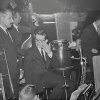
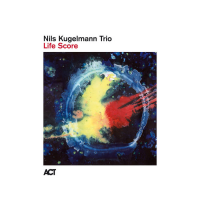

 Buy Now
Buy Now




